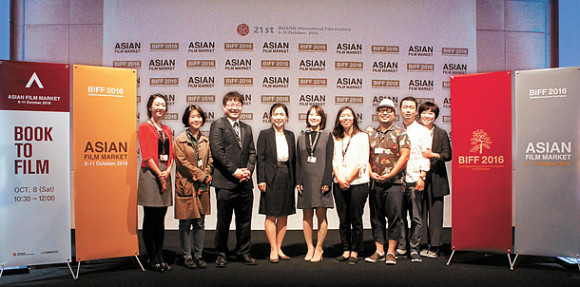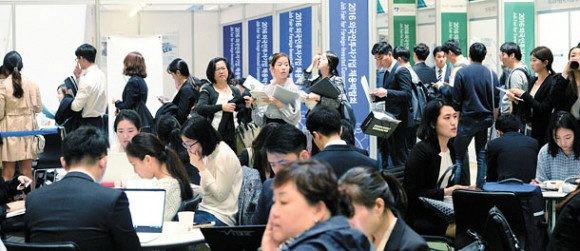ふべんだ (不便だ): 후벵다 (불편하다)
この座席(ざせき)は不便(ふべん)だ。: 이 좌석은 불편해.
交通(こうつう)が不便(ふべん)で時間(じかん)が結構(けっこう)かかる。: 교통이 불편해서 시간이 꽤 걸린다.
この携帯(けいたい)、不便(ふべん)だけど安(やす)いから…: 이 휴대폰, 불편하지만 싸니까…

'Study > Japanese' 카테고리의 다른 글
| すずしい (涼しい): 스즈시- (시원하다) (0) | 2016.11.03 |
|---|---|
| つめたい (冷たい): 츠메타이 (차갑다) (0) | 2016.11.02 |
| べんりだ (便利だ): 벵리다 (편리하다) (0) | 2016.10.31 |
| じょうずだ (上手だ): 죠-즈다 (능숙하다, 잘하다) (0) | 2016.10.28 |
| しゅみ (趣味): 슈미 (취미) (0) | 2016.10.27 |
Zombie Entertainment
Zombies are fictional reanimated human corpses. They are usually seen in horror and fantasy movies and TV shows. Zombies are commonly associated with Haitian folklore. However, the concept of zombiesis not exclusive to Haitian folklore. Different cultures have different terminologies for zombies. Earlier versions of zombies are corpses that are reanimated through magic. Contrary to this, modern zombies are usually results of exposure to radiation, diseases, and scientific disasters.
The earliest modern literatures that depicted the living dead include Mary Shelley’s “Frankenstein.” Although Frankenstein isn’t strictly a zombie story,its portrayal of how corpses are resurrected departed from folklore and magic, and leaned towards science.
The earliest films featuring zombies include the American film “White Zombie” which was released in 1932. Recent depictions of zombies are often interwoven with science-fiction as set by the 1968 film “Night of the Living Dead” by George A. Romero who is known for his horror films about imagined zombie apocalypse.
The 2000s is a period in which zombie films and TV series experienced revival through blockbuster movies. In 2013, the movie “World War Z” starring Brad Pitt was originally anticipated to fail, but enjoyed enormous critical acclaim and gross earnings. In 2016, Korea’s “Train to Busan” also gained worldwide popularity right after it was released. It became the all-time highest-grossing Korean film in Malaysia and Hong Kong.
According to Mark Brooks, writer of the book “World War Z,” people watch zombie movies and shows not only to be entertained but also to have an avenue for them to channel their worries about apocalyptic events. Moreover, the horror genre allows people to come to terms with what subconsciously terrifies them about all things supernatural. On the other hand, the zombie subgenre allows people to address their fear that the world may soon succumb to chaos brought by pandemics, climate change, and terrorist attacks.
Because zombies have become marketable, they are now considered a separate horror subgenre. Zombies are also common in comic books, art, gaming, and music. Aside from the adrenaline-pumping and entertaining element of the zombie subgenre, it plays into people’s survival instincts and interest in how the world would come to an end through the common zombie apocalyptic themes which depict the breakdown of societies resulting from an initial zombie outbreak.

'Study > English' 카테고리의 다른 글
| U.S.-Korean exercise targets North (0) | 2016.11.03 |
|---|---|
| Samsung profit plunges (0) | 2016.11.02 |
| Nukes are North Korea’s ‘ticket to survival’: Clapper (0) | 2016.10.31 |
| Presidential Candidates Face Off (0) | 2016.10.28 |
| Books hope to jump to the big screen at BIFF (0) | 2016.10.27 |
べんりだ (便利だ): 벵리다 (편리하다)
タクシーはやっぱり便利(べんり)だよね。: 택시는 역시 편리하네요.
このペンは便利(べんり)で毎日(まいにち)使(つか)っています。: 이 펜은 편리해서 매일 사용하고 있어요.
世(よ)の中(なか)、便利(べんり)になりましたね。: 세상, 편리해졌네요.

'Study > Japanese' 카테고리의 다른 글
| つめたい (冷たい): 츠메타이 (차갑다) (0) | 2016.11.02 |
|---|---|
| ふべんだ (不便だ): 후벵다 (불편하다) (0) | 2016.11.01 |
| じょうずだ (上手だ): 죠-즈다 (능숙하다, 잘하다) (0) | 2016.10.28 |
| しゅみ (趣味): 슈미 (취미) (0) | 2016.10.27 |
| ふかい (深い): 후카이 (깊다) (0) | 2016.10.26 |
Nukes are North Korea’s ‘ticket to survival’: Clapper
James Clapper, U.S. director of national intelligence, called the goal of getting North Korea to denuclearize “a lost cause” and said the best Washington can hope for is to put a “cap” on its weapons of mass destruction program. “I think the notion of getting the North Koreans to denuclearize is probably a lost cause,” said Clapper, speaking at the Council on Foreign Relations think tank in New York on Tuesday, as he gave an assessment of what negotiations can accomplish in regard to the North’s nuclear program. “They are not going to do that. That [the nuclear program] is their ticket to survival.” “I got a good taste of that when I was there about how the world looks from their vantage,” he elaborated. “And they are under siege and they are very paranoid. So the notion of giving up their nuclear capability, whatever it is, is a nonstarter with them."
In November 2014, Clapper made a secret visit to Pyongyang carrying a letter from U.S. President Barack Obama and negotiated the release of two Americans held captive, Kenneth Bae and Matthew Miller. The former U.S. Air Force lieutenant general added, “The best we could probably hope for is some sort of a cap,” on the North’s nuclear program. But Clapper said that he doesn’t think there will be an Iran-style deal to put a cap on or suspend North Korea’s nuclear and missile programs. North Korea conducted its fourth nuclear test in January and its fifth in September and conducted over 20 ballistic missile launches this year, in violation of UN Security Council resolutions. Clapper said it is necessary to take into consideration the “worst-case assumption” in regard to North Korea’s ability to put a nuclear warhead on a missile that can reach the United States, even though there is no way to confirm that the regime’s intercontinental ballistic missiles actually work, including the KN-08. He went onto ascribe to Pyongyang “the capability to launch a missile that would have a weapon on it that potentially could reach parts of the United States, certainly including Alaska and Hawaii.”
In terms of a strategy against such nuclear and missile threats, Clapper said there is a “military option” as well as sanctions — though he pointed out, “We’re kind of running out of gas on sanctions since we’ve imposed most of them that we can. “A key player with respect to sanctions is, of course, China,” said Clapper. He added that in terms of policy toward Pyongyang, “What does bother me a bit is that we don’t capitalize on our great weapon, which is information. And that’s something they worry about a lot.” He said that the North Koreans “go nuts” over propaganda loudspeakers being activated along the demilitarized zone in the South or the dropping of leaflets by nongovernmental organization over North Korea. Clapper said, “And so that is a great vulnerability that I don’t think we have exploited.” The U.S. Department of State last month submitted a report to Congress outlining a detailed plan to flood North Korea with outside information to enhance its people’s international awareness. Clapper was appointed U.S. director of national intelligence in 2010 by Obama and oversees 16 intelligence agencies, including the Central Intelligence Agency, NSA, Federal Bureau of Investigation and National Security Agency.
But U.S. State Department spokesman John Kirby said in a briefing Tuesday that while he had not directly seen Clapper’s commends, “Nothing has changed about our policy with respect to the North and that we want to continue to see a verifiable denuclearization of the peninsula.” Kirby continued, “We want to see a return to the six-party talk process, and that means we need to see the North show a willingness and an ability to return to that process, which they haven’t done yet.”

'Study > English' 카테고리의 다른 글
| Samsung profit plunges (0) | 2016.11.02 |
|---|---|
| Zombie Entertainment (0) | 2016.11.01 |
| Presidential Candidates Face Off (0) | 2016.10.28 |
| Books hope to jump to the big screen at BIFF (0) | 2016.10.27 |
| Job seekers need friends, and to chill out alone (0) | 2016.10.26 |
じょうずだ (上手だ): 죠-즈다 (능숙하다, 잘하다)
妹(いもうと)は英語(えいご)が上手(じょうず)だ。: 여동생은 영어를 잘한다.
料理(りょうり)が上手(じょうず)になりたい!: 요리를 잘하고 싶어!
彼(かれ)は数学(すうがく)が上手(じょうず)で、教授(きょうじゅ)を夢見(ゆめみ)ている。: 그는 수학을 잘해서, 교수를 꿈꾸고 있다.

'Study > Japanese' 카테고리의 다른 글
| ふべんだ (不便だ): 후벵다 (불편하다) (0) | 2016.11.01 |
|---|---|
| べんりだ (便利だ): 벵리다 (편리하다) (0) | 2016.10.31 |
| しゅみ (趣味): 슈미 (취미) (0) | 2016.10.27 |
| ふかい (深い): 후카이 (깊다) (0) | 2016.10.26 |
| うんめい (運命): 움메- (운명) (0) | 2016.10.25 |
Presidential Candidates Face Off
Presidential debates are customary in many countries. They are necessary during presidential elections for people to make an informed decision on who they think can best run their country.During the debates, candidates get a chance to talk about their policies, priorities, positions, vision, values, and the like.
One of the most widely watched debates in the world is the U.S. presidential debates. The debates are usually held during the latter days of the election cycle, after political parties have nominated their candidates. The debates are broadcast live on television, radio, and recently, online.
The debates between Abraham Lincoln and Senator Stephen Douglas in 1858 were the predecessors of the country’s first U.S. presidential debatebetween Senator John F. Kennedy and Vice President Richard Nixon in 1960. It drew huge publicity especially for Kennedy who appeared sharp, confident, and relaxed during the debate.
On September 26, 2016, the first presidential debate between Democratic nominee Hillary Clinton and Republican nominee Donald Trump was held at Hofstra University in New York. There was much anticipation on the debate’s outcome especially since Trump is untested in the kind of format that the debate has. The debate garnered the most viewers of any presidential debate in American history with 84 million viewers, not including those who watched it online and elsewhere.
Candidates usually speak behind a podium or at conference tables while a moderator stays on the other side. Candidates do not have prior knowledge about the questions to be asked. The debates usually end with closing statements from each candidate. The formats of the debates vary. They can allow either one or more journalist moderators or members from the audience to ask questions. For example, this year’s second presidential debate had a “town meeting” format where questions came from members of the public as approved by moderators, contrary to the first debate in which questions only came from the moderator.
Television has influenced election campaigns a lot, allowing viewers to get to know the candidates in a way that radio could not. However, since television advertisements have become less convincing to voters because of advertisements’ scripted nature, debates have become helpful in allowing the largest possible audience to see the presidential aspirants in a more candid light.Televised debates reveal how well candidates can think on their feet, test how well they respond to questions and scrutiny, and determine the candidates’ knowledge of policies and timely issues that concern the country. For instance, the 2016 first U.S. presidential debate was about achieving prosperity, America’s direction, and securing

'Study > English' 카테고리의 다른 글
| Zombie Entertainment (0) | 2016.11.01 |
|---|---|
| Nukes are North Korea’s ‘ticket to survival’: Clapper (0) | 2016.10.31 |
| Books hope to jump to the big screen at BIFF (0) | 2016.10.27 |
| Job seekers need friends, and to chill out alone (0) | 2016.10.26 |
| The Opium War and China (0) | 2016.10.25 |
しゅみ (趣味): 슈미 (취미)
趣味(しゅみ)といえるものがない。: 취미라고 할만한 게 없다.
趣味(しゅみ)は、カフェめぐりかな。: 취미는, 카페 탐방이려나.
趣味(しゅみ)は何(なん)ですか。: 취미는 뭐예요?

'Study > Japanese' 카테고리의 다른 글
| べんりだ (便利だ): 벵리다 (편리하다) (0) | 2016.10.31 |
|---|---|
| じょうずだ (上手だ): 죠-즈다 (능숙하다, 잘하다) (0) | 2016.10.28 |
| ふかい (深い): 후카이 (깊다) (0) | 2016.10.26 |
| うんめい (運命): 움메- (운명) (0) | 2016.10.25 |
| かりる (借りる): 카리루 (빌리다) (0) | 2016.10.24 |
Books hope to jump to the big screen at BIFF
The Busan International Film Festival (BIFF) provides a window of opportunity for renowned filmmakers, cineastes and actors to screen their work and to communicate with audiences about the films. Another role of the annual festival, which kicked off on Oct. 6 and will continue until Saturday, is providing networking opportunities for content creators to meet professionals from the Asian film industry.
The Asian Film Market took place from Saturday to Tuesday this year, and boasted numerous events such as the Entertainment Intellectual Property Market (E-IP Market), where original stories can be bought and sold for adaptation across a number of media platforms. A notable event at the E-IP Market is Book to Film, where publishers introduce their books to filmmakers in the hopes of having their books adapted to screen. Held on Saturday at Bexco Hall, next to the Busan Cinema Center, 10 books were pitched to filmmakers at the event with the hope of one day being made into films. Unlike last year, when a variety of genres were introduced, five out of ten of the books presented this year fell into the thriller category. “We didn’t intend to focus on thrillers this year,” said Susan Chae, a Selection Committee member from the E-IP Market. “However, the reason is likely because a number of young authors submitted their works this year, and there were many well-crafted thrillers among those handed in.
One of the thrillers was “The Best Life,” written by Lim Sol-a and published through Munhakdongne Publishing Group. At the heart of the story are three girls - Kang-i, So-young, Aram - who leave home under the leadership of So-young. No matter how miserable their lives become, they are persistent in refusing to return home until So-young decides to return to her parents after they agree to financially support her dream of becoming a model. When Kang-i and Aram realize that So-young used them in order to make her parents pay for modeling school, they feel betrayed, and decide to end their friendship with So-young. The story is based on the author’s experience. Another story presented was the romantic “Festival Lady,” which revolves around a girl named Fedy. Written by Choi Youn-kyo and published by Holiday Apartment, the story draws on Fedy and the love she meets at Wooumdo Rock Festival, which she attends despite her hatred towards music to look for her music-loving mother who left home and to find out who her father is, who Fedy’s mother claims is a renowned rock star. Even armed with interesting plots, it is not very common for publishers to be able to ink a deal with studios. Book to Film marked its fifth anniversary this year, but the number of books that have signed development contracts is no more than 10.
According to Chae, the specific figure is difficult to confirm, as there are works that are still under negotiation, but the number of books that have signed deals since the event began add up to around seven, including this year’s “Summer, A Corpse from Nowhere,” penned by Park Yeon-sun, which inked a deal with film production company, Pollux Pictures, on the event’s opening day.

'Study > English' 카테고리의 다른 글
| Nukes are North Korea’s ‘ticket to survival’: Clapper (0) | 2016.10.31 |
|---|---|
| Presidential Candidates Face Off (0) | 2016.10.28 |
| Job seekers need friends, and to chill out alone (0) | 2016.10.26 |
| The Opium War and China (0) | 2016.10.25 |
| Government pledges to invest in engineering (0) | 2016.10.24 |
ふかい (深い): 후카이 (깊다)
そっちは深(ふか)いから、入(はい)らないように!: 그쪽은 깊으니까, 들어가지 않도록!
彼(かれ)は深(ふか)く考(かんが)えた。: 그는 깊이 생각했다.
深(ふか)い夜(よる)、私(わたし)は到底(とうてい)眠(ねむ)れなかった。: 깊은 밤, 나는 도저히 잠들 수 없었다.

'Study > Japanese' 카테고리의 다른 글
| じょうずだ (上手だ): 죠-즈다 (능숙하다, 잘하다) (0) | 2016.10.28 |
|---|---|
| しゅみ (趣味): 슈미 (취미) (0) | 2016.10.27 |
| うんめい (運命): 움메- (운명) (0) | 2016.10.25 |
| かりる (借りる): 카리루 (빌리다) (0) | 2016.10.24 |
| はらう (払う): 하라우 (지불하다, 내다) (0) | 2016.10.21 |
Job seekers need friends, and to chill out alone
The annual autumn job-hunting season has kicked off, and entry-level worker candidates either in college or freshly graduated show three key tendencies, according to big-data analysis by Innocean, an advertising arm of Hyundai Motor. Job seekers tend to rely on each other in preparation groups - to share information and help each other stay motivated - but prefer to be on their own when it comes to relieving stress. Due to a shortage of venues to congregate, they tend to meet and study in unconventional places such as bars and motels. The results are based on 600,000 pieces of data from blogs, portal sites, web communities and social networks in the past year, collected through the keywords “youth employment.”
As job candidates have little money and time, they ease their stress with the most economical methods, such as surfing the internet, exercising, playing with smartphones or stretching. The job market is so competitive, young people seek consolation from people in the same position. But that exposes them to a different kind of mental stress, which prompts them to hide in their dens at night. “In the afternoon, I look for information on the school’s community website or meet with my study group members, and at night, I drink alone or go the karaoke to sing to myself,” explained 26-year-old job seeker Choi Sung-sik. “I joined a study group because I needed both the peer pressure and peer motivation,” said Park Si-on, a 25-year-old college senior. “But when it comes to relieving my stress, I prefer to spend time on my own. I usually download a movie on the weekend and watch it with a bottle of beer in my room. The quiet alone-time helps calm my mind.”
As study groups become an essential part of job seeking, people are finding it harder to find a place to meet up. Almost 6,500 pieces of the 600,000 bits of social media data show that space available for job seekers to congregate is limited - partly because not all of them are still in school. The most popular venue was cafes, where it’s free to hang around without a time limit. Other venues frequented by them include bars and motels. “As the spaces for meeting and studying are scant, some private institutes or bars have devised the idea of renting space during non-operating hours to job seekers,” the report said. “Even some motels are catering to job candidates and have earned the nickname ‘study motels.’”
The challenging environment for young job seekers is undermining many people’s morale. Almost two in three people currently looking for a job are overwhelmed by their situations and wish that they could stop the search. A survey conducted on 635 job seekers by Job Korea, a major portal website for job seekers, and Albamon, a part-time job agency website, revealed that 61.7 percent of the subjects indicated they would like to give up on their hunt. Such pessimistic views were mostly due to not being able to find the right job (44.1 percent), job requirements were too high (37.5 percent) and no companies would hire them (36.0 percent).

'Study > English' 카테고리의 다른 글
| Presidential Candidates Face Off (0) | 2016.10.28 |
|---|---|
| Books hope to jump to the big screen at BIFF (0) | 2016.10.27 |
| The Opium War and China (0) | 2016.10.25 |
| Government pledges to invest in engineering (0) | 2016.10.24 |
| The Ripple Effect of China’s Economic Slowdown (0) | 2016.10.21 |
